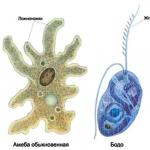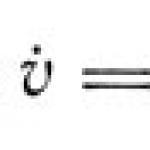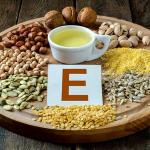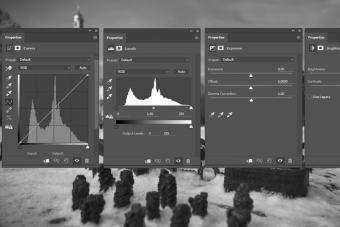Plantain is a genus of herbs belonging to the Plantain family and numbering more than one and a half hundred species. The plant is distributed throughout the globe, mainly in temperate and subtropical zones, it can be found along roads, in wastelands, meadows, in steppes and sands. In official and alternative medicine, the healing properties of flea, lanceolate and large plantain are most often used. The plant is used in the treatment of bronchitis, enteritis, gastritis, for healing wounds and pustular skin lesions.
Chemical composition
Large plantain, also called fellow traveler, seven-veiner, cutter, roadside, grows throughout the territory of the former Soviet Union. The perennial plant reaches up to 30-40 cm in height, has a short rhizome and petiolate, broadly oval leaves in a basal rosette. The flowers of the grass are four-membered, small, collected in an inflorescence in the form of an ear located at the top of the stem, flowering occurs in May-August, and the fruits (ovoid seed pods) appear in August-September.
For medicinal purposes, mostly seeds and dried or fresh plantain leaves are used, the composition of which is represented by:
- Polysaccharides (including mucus);
- Glycosides (plantagin, aukubin);
- Organic acids (citric, salicylic, etc.);
- bitterness;
- Flavonoids;
- tannins;
- Phytoncides;
- Carbohydrate mannitol;
- alkaloids;
- Choline;
- Ascorbic acid;
- Carotenoids.
As well as such trace elements as magnesium, potassium, calcium, barium. Grass seeds found: starch, mannitol, saponins, fatty oil, carbohydrates, tannins.
Beneficial features
The hemostatic and wound-healing properties of plantain were known in ancient Rome and Greece. Currently, traditional and folk medicine, the use of plantain as a means of improving the secretory and motor function of the gastrointestinal tract, as well as increasing the acidity of gastric juice, is recommended in the treatment of: gastritis, enteritis, enterocolitis, dyspepsia. Grass juice sold in pharmacies, as well as the drug Plantaglucid, obtained from the extract of plantain leaves, is prescribed for ulcerative lesions of the duodenum and stomach (with normal and low acidity), hypocidic gastritis, digestive disorders, anorexia.
Preparations based on the hepterosa, used in the treatment of bronchitis, tuberculosis, bronchial asthma, whooping cough, enhance the secretion of mucus in the bronchi, liquefy it and facilitate further evacuation when coughing. The sedative and hypotensive properties of plantain are used when taking an alcoholic infusion of the herb to combat edema, insomnia, high blood pressure, excessive irritability, with the help of the herb the load on the CCC is reduced.
Externally, juice from fresh leaves and crushed grass, as drugs that accelerate the release of purulent secretions and stimulate the growth of granulations, are prescribed for healing wounds, cuts, burns, boils, insect bites, and eye injuries. With dried or canned juice, folk healers treat disorders of the kidneys and liver, oncological lesions of the stomach and lungs.
The use of plantain in the form of decoctions and water infusions is recommended for rinsing with bleeding gums, ulcerative gingivitis and stomatitis, and toothache. For oral administration as blood-purifying and anti-inflammatory drugs - for urticaria, fever, scurvy, hemorrhoids, cystitis, hepatitis, skin lesions.
Decoctions of plant seeds, rich in mucus and having a laxative, enveloping and antispasmodic effect, treat chronic constipation, colitis, inflammatory processes of the gastrointestinal tract.
Indications for use
- Gastritis;
- Enterocolitis;
- enteritis;
- Ulcerative defects of the duodenum and stomach;
- Dyspepsia;
- cystitis;
- Digestive disorders;
- hemorrhoids;
- tuberculosis;
- Malaria;
- bronchitis;
- whooping cough;
- neuroses;
- Bronchial asthma;
- insomnia;
- Purulent wounds;
- Furunculosis;
- Various skin lesions;
- Erysipelas;
- Insect bites;
- Gingivitis:
- stomatitis;
- Periodontitis.
Contraindications
The use of plantain is contraindicated against the background of:
- Individual hypersensitivity to the plant;
- Predisposition to increased blood clotting;
- Exacerbations of erosive and ulcerative disease of the gastrointestinal tract;
- A persistent increase in the acidity of gastric juice;
- Thrombosis.
Long-term use of plant-based products is not recommended, as they contribute to blood clotting, thereby increasing the likelihood of blood clots. Before starting therapy, it is advisable to consult with specialists.
Plantain home remedies
For constipation, a tablespoon of seeds is poured into 200 ml of boiling water and, after cooling, they are drunk at night with the seeds, the effect of the infusion is usually observed after 8-12 hours.
For the treatment of tonsillitis, tonsillitis, stomatitis, gingivitis, gargling of the throat and mouth with plantain infusion is prescribed, for the preparation of which 4 fresh or dried leaves are poured into ½ cup of boiling water, after half an hour of infusion in a warm form, they are used every hour, for taste, honey is allowed.
With a strong cough, bronchitis, whooping cough, bronchial asthma, it is recommended to mix 3 tablespoons of honey (sugar can be) with the same amount of chopped fresh plantain leaves. Then, in a tightly closed container, wrapping the mixture, leave for 3-4 hours in a warm place, the resulting syrup after filtering is taken in a teaspoon 4 times a day.
To prepare a decoction that helps with digestive disorders, inflammation of the gastrointestinal tract, dyspepsia, a tablespoon of seeds is poured into 250 ml of hot water and boiled for 5-7 minutes, then insisted for 20-25 minutes and consumed 3-4 times a day, 50 ml.
Many of us have known about the property of plantain to heal wounds since childhood. But the medicinal properties of roadside grass are not limited to this. In traditional and folk medicine, the medicinal properties of the leaves, roots and seeds of psyllium are used.
Plantain: medicinal properties
 This herb is a component of natural extracts and essential oils, which are used for skin lesions, diarrhea, dyspepsia. The healing properties of plantain are used for irritability, mild forms of neuroses, and insomnia.
This herb is a component of natural extracts and essential oils, which are used for skin lesions, diarrhea, dyspepsia. The healing properties of plantain are used for irritability, mild forms of neuroses, and insomnia.
Decoctions and syrups from plantain help to activate the bronchi, increase the secretion of mucus in the bronchi, helping to thin the sputum. Preparations containing plantain are used in the treatment of inflammatory processes of the uterus, ovaries, parametritis, uterine bleeding in women.
The medicinal properties of plantain are used for gastritis, stomach ulcers with high acidity, inflammation of the duodenum, and hemorrhoids. Plantain is known for its anti-inflammatory properties.
Treatment of wounds with plantain
Due to their antimicrobial properties, plantain leaves have been used in the treatment of wounds, including poorly healing ones, suppurations, abscesses. Plantain helps to quickly stop bleeding.
To take advantage of the healing properties of plantain leaves, apply the washed leaves of the plant to the damaged area in several layers. It is advisable to fix with a bandage. After 2-3 hours, the leaves need to be replaced.
To treat bruises and inflammations on the skin, grind plantain leaves, wrap in gauze and fix on the affected area. If the leaves are dried, soak them in warm water.
On the basis of psyllium seeds, poultices are made that relieve inflammation of the skin.
The healing properties of plantain for coughing
An infusion of plantain leaves helps to remove mucus from the bronchi. It helps reduce cough. The medicinal properties of the infusion of plantain leaves are used in the treatment of acute respiratory infections, tonsillitis, bronchitis.
To prepare the infusion, take 1 tbsp. l. crushed leaves of roadside grass, brew a glass of boiling water and leave to infuse for 1 hour (or 30 minutes in a water bath), strain. You can gargle with this infusion, and for a better separation of sputum in case of bronchitis, take half a glass 3-4 times a day. But before using these or other prescriptions, consult your doctor.
Plantain: contraindications
The medicinal properties of plantain are not suitable for people with increased blood clotting.
Psyllium-based recipes are not suitable for treating stomach problems in people with high acidity. You should also be careful with the use of psyllium as a medicine for those who are allergic to any
Application, recipes and medicinal properties of plantain.
medicinal plant plantain genus of perennial and annual herbs of the subshrub family plantains. About 250 species are known, they grow in subtropical and temperate zones (less often in the tropics).
Plantain. Description. They are often found along roads, in meadows, in the sands, in the steppes, in weedy places, wastelands. In most types psyllium seeds contains aucubin glycoside and mucus. Name - flea seed.
HEALING PROPERTIES OF PLANTAIN.
Plantain. Benefit and harm. Video
EXTERNAL USE OF PLANTAIN
INTERNAL USE OF PLANTAIN.
In traditional medicine plantain leaf infusion help as expectorant means, bronchial, bronchitis, pulmonary tuberculosis, whooping cough. In medicine, practical preparations plantain applicable when ulcer 12 - duodenal ulcer and stomach. Externally used for inflammation of the nasopharynx And oral cavity, boils, purulent, burns, phlegmon, cuts, bruises, wounds, chronic ulcers(how bacteriostatic and wound healing). IN gynecology apply when endometritis, infertility, anovulation, adieksit, at parametritis, myometritis. plantain juice good at acne and treatment corneal wound And neurodermatitis.
FOLK WAYS AND RECIPES FOR PLANTAINE TREATMENT
Plantain for cancer. Video
Plantain with gastritis, colitis, enterocolitis, ulcers 12 - duodenal ulcer and stomach: 3 teaspoons of dry leaves in boiling water st. Insist from six to eight hours, drink a third of Art. in 30 min. before eating.
Upper respiratory tract catarrh is treated with plantain infusion. Tablespoon dried plantain poured with a liter of boiling water and kept on low heat for about ten minutes. Keep warm for days. Strain and drink according to Art. spoon 3 times a day for 15 minutes. before eating.
PLANTAIN WITH COLITIS, ENTEROCOLITIS, GASTRITIS result will be if plantain juice drink on a spoon 3 times a day for a quarter of an hour before meals. For the winter period vodka canned by mixing in equal parts.
Plantain leaf infusion has a good effect on the MALE GENERAL GLANDS, used for IMPOTENCY. Cooking infusion of plantain leaves so: twenty-five gr. raw materials pour boiling water Art. insist 60 minutes, decant. Take a spoonful. three to four times a day.
FOLK RECIPE FOR PLANTAINE SEED INfusion: Twenty five gr. raw materials pour boiling water in a glass, shake for a long time, then filter. Take a spoonful. 3 times a day before meals.
PLANTAINE PREPARATION. plantain juice squeezed out fresh leaves, harvested from May to September. Sheets with part of the cutting rinse in cool water (the water is allowed to drain), scald with boiling water, then pass through a meat grinder and squeeze through a dense cloth. In case of obtaining thick juice, dilute with water in a ratio of one to one. Boil 1 to 3 minutes. Take one to two tablespoons. along with a spoon. honey three to four times a day before meals (dilute the juice in 0.5 tablespoons of water at room temperature). One course - thirty days.
Plantain oil, home production.
Plantain is a medicinal plant used for centuries in folk medicine. Healers knew its virtues and used it as an antibacterial, anti-inflammatory agent, for the treatment of dry chronic cough, diseases of the gastrointestinal tract and urinary tract.
Plantain grows wild in the temperate zone throughout the northern hemisphere. It can be found at the foot of the mountains. It lives in large numbers in meadows and pastures. It occurs as a weed of cereals, alfalfa and clover. Prefers light chernozem or clay-sandy soils. Currently, it rarely grows in natural conditions, mainly due to the increased use of herbicides.
About the plant
Plant description:
- 1. Height - from 5 to 40 cm, varies greatly depending on the properties of the soil.
- 2. The stem is short (therefore, the leaves are located on the earth's surface), only during flowering 1-3 (rarely more) unbranched peduncle shoots develop. They are straight, sparsely pubescent, grow from the mouth of the leaves.
- 3. Leaves - oval or ovoid, green, leathery, grow from the base of the plant up to 12 cm in length. On their surface, clearly defined longitudinal veins are visible. The leaves have long stiff petioles that grow from a short underground rhizome, forming a dense basal rosette just above the ground.
- 4. Flowers - small, with a brown-green or white-yellow corolla, are located one at a time in the axil of the bract.
- 5. Fruit - is an ovoid, multi-seeded box with small seeds located in each nest in the amount of 4-16 pieces. Mature seeds spill out of the nest directly onto the ground. In wet weather, they secrete mucus, thanks to which they cling to the fur of animals or the soles of human shoes and are transported over considerable distances. Mature seeds can begin to germinate as early as the same year they hit the ground (late summer or early autumn).
- 6. Flowering time - at the end of spring and until the end of summer.
There are 150 species of this plant. The most common:
- 1. Large or ordinary - found almost everywhere. A compress from its leaves is used for bruises, wounds, boils. An alcoholic tincture from the plant helps lower blood pressure.
- 2. Lanceolate. It is characterized by the presence of long leaves with healing properties. The plant is used for whooping cough and bronchitis.
- 3. Medium or flea - grows mainly in the Caucasus. This herb is the main component of effective laxatives.
Plantain leaves should be collected from spring to autumn. The first time - at the beginning of April, and the second - at the end of the growing season. Collection of material is carried out in clean places, on warm and dry days. Care should be taken that the leaves are young, healthy and dust-free.
plantain leaves
The collected raw materials can be used for various purposes. Juices, tinctures, ointments made from it are applied inside and directly to the skin. The preparation of dry raw materials is carried out in natural dryers or in heated rooms, and it should be remembered that the temperature should not exceed 40 ° C.

Medicinal and cosmetic properties
The composition of the plant includes such active compounds as:
- pectin;
- vitamins (C and K);
- minerals (magnesium, zinc, sodium, silicon, potassium);
- flavonoids;
- organic acids: benzoic, fumaric;
- tannins;
- enzymes;
- saponins.
Healing properties of plantain:
- has anti-inflammatory and antiviral action;
- helps in the fight against wet and dry cough - it has an expectorant effect;
- clears the lungs of mucus residues in them, the upper respiratory tract;
- increases blood clotting;
- exhibits an antispasmodic effect;
- fights smoker's cough;
- prevents infections of the upper respiratory tract;
- treats sore throat;
- has an antibiotic effect;
- helps in the treatment of whooping cough;
- contributes to the treatment of bronchial asthma;
- helps to get rid of hoarseness, inflammation of the oral mucosa;
- treats inflammatory processes of the gastrointestinal tract;
- promotes the treatment of infections of the genital organs;
- minimizes diseases associated with the bite of insects, in particular mosquitoes, bees;
- fights puffiness and bags under the eyes;
- promotes the treatment of ulcers and hard-healing wounds, calluses;
- helps in the treatment of varicose veins;
- contributes to the treatment of eye diseases, for example, conjunctivitis, inflammation of the eyelids;
- stimulates the secretion of gastric juices;
- protects the liver;
- helps to get rid of constipation in the treatment of stomach cancer;
- reduces pain and ailments of the stomach, for example, in case of poisoning;
- treats inflammation of the prostate gland and inflammation of the urethra in men;
- helps during heavy menstruation in women;
- has a diuretic effect.
Plantain is produced as a medical phytopreparation. Instructions for use allow it to be used for bronchial diseases and coughs as an expectorant and mucus-thinning medicine.
Cosmetic properties:
- helps get rid of acne;
- narrows enlarged pores;
- accelerates skin cleansing;
- improves the condition of damaged capillaries;
- strengthens blood vessels;
- regenerates the skin;
- helps to get rid of bruises;
- acts as an astringent;
- fights dandruff,
- has a disinfectant effect.
It is used as a component of day and night creams, milk, tonics, lotions for skin cleansing, masks, peelings.
Useful recipes for cooking at home:
- 1. Tincture or syrup of plantain with alcohol. Indications for use: respiratory diseases, dry cough, hoarseness, sore throat. 100 g of fresh plantain leaves should be finely chopped and then chopped, for example, in a meat grinder. The ground leaves are placed in a bowl, about 100 ml of warm water is added to them and mixed. The prepared mixture must be filtered. 100 g of sugar should be added to the juice thus obtained. All you need to cook, bringing to a boil. After cooling, add 50 ml of vodka and pour the syrup into jars.
- 2. Syrup without alcohol. Indications for use: colds, coughs, strengthening the body. Fresh plantain leaves must be cut, and then put in a jar in layers - alternating with honey (or sugar). A jar completely filled with leaves and honey is placed in a dark place, and after 10 days the syrup is ready for use. The tool can be used for adults and children with colds and viral diseases. It should be applied 2 times a day for 1-2 tsp.
- 3. Infusion of leaves. Application: inflammation of the mucous membranes of the gastrointestinal tract, compresses on boils, varicose veins, wounds that are difficult to heal. An infusion diluted with water (in half) can be used to wash the eyes. Preparation: 2 tbsp. l. dried plantain leaves should be poured with 2 cups of hot water. The prepared infusion can be drunk 2 to 4 times a day, it can also be used for compresses.
- 4. A decoction of the root. The dried root of the herb is used in Chinese medicine to increase sperm activity in men. A strong decoction is prepared from the root of the plant, which is added to medicinal baths. Also known is the use of a decoction of psyllium root for inflammation of the bile ducts. 3 art. l. dry roots should be poured with 2 glasses of water and prepare a decoction. The mixture must be boiled for 10 minutes. The drug is taken 3 times a day for a week.
- 5. A decoction of the leaves. Application: for dandruff, in the treatment of skin diseases, rashes, diseases of the digestive system (for example, diarrhea), diseases of the respiratory system. 1 st. l. dried plantain leaves should be poured with a glass of boiling water, and then boiled, bringing to a boil. After cooling, strain the mixture. After half a glass of decoction should be consumed 2 times a day.
- 6. Leaf tea. Usage: Choking cough, smoker's cough, hoarseness, asthma. 1 st. l. plantain leaves should be poured with a glass of boiling water. After cooling, strain the tea. To enhance the healing properties of the drink, it is worth adding lemon juice and 1 tbsp. l. thyme.
- 7. Leaf compress. Application: difficult to heal wounds, boils, bedsores, varicose veins, burns, rashes, bruises, insect bites. Crushed or whole leaves of fresh plantain should be applied to a sore spot on the skin. Plasters or bandages can be used to secure the sheet.
- 8. Tonic for the face. Application: eczema, acne. Several plantain leaves must be poured with boiling water and allowed to stand for 15 minutes. After that, a glass of white wine should be added to the cooled infusion. Bottled tonic should be stored in the refrigerator.
- 9. Leaf mask. Application: facial skin rashes, increased greasiness, acne. 3 handfuls of plantain leaves must be crushed, and then mixed with half a glass of sour cream. Apply the prepared mask on the skin of the face for about 15 minutes, after which the remnants of the product should be washed off with warm water.
Another famous ancient Greek healer Hippocrates, the "father of medicine", mentions the healing qualities of this medicinal plant.
The ancient Greeks and Romans used psyllium and its seeds to treat stomach inflammation, intestinal disorders, and infections.
In China, for example, 3000 years ago, plantain herb was used as a medicine.
The Arab philosopher Avicenna prepared his potions from this medicinal plant and treated ulcers and bleeding, knowing full well about its astringent properties, and with dry frayed leaves - difficult-to-heal ulcers and wounds.

There is a legend about the discovery by people of the healing effects of plantain herb. A road wagon with people was run over by snakes basking in the sun, but one of the snakes managed to escape. How surprised people were to see how the surviving snake returned to the crushed friend, holding an inconspicuous leaf in her teeth. This incident marked the beginning of the active use of this plant for recreational purposes.
In order to visit the pharmacy less often for pharmaceuticals, sometimes it is worth walking through the forest, because there you can find everything you need for good health! Today we will learn about the properties of plantain, find out to whom and from what it can help, and who should not use it. The healing properties of the leaves of this plant have been known for centuries, but there are also contraindications, which should also not be forgotten.
Plantain, inconspicuous and familiar to all of us since childhood, is actually suitable not only for applying it to broken knees - to stop the blood and soothe the pain. This medicinal herb can replace almost the entire first-aid kit!
Its leaves contain vitamins C and K, carotene, tannins, a rare glycoside aukubin, citric acid. Many cooks like to add plantain to salads, casseroles, omelettes, and even pizza.
Studies have shown that this nondescript plant contains phytohormones, phytoncides and vegetable proteins. And in the seeds - saponins and essential oleic acid, which belongs to the polyunsaturated fatty acids omega-9.
Plantain herb properties and treatment
Ancient medical books and reference books abound with recipes using lanceolate plantain, which has an almost unlimited scope. Medicinal collections and formulations based on this roadside herb have antispasmodic, antibacterial, anti-inflammatory, regenerating properties.
The leaves of the plant contain carotene, phytoncides, flavonoids, vitamin C, organic acids, etc., and its seeds contain mucus and fatty oil.

Beneficial features
- The fresh juice of the leaves is an excellent wound healing remedy. Juice diluted with water 1:2 is able to prevent the growth of hemolytic and pathogenic staphylococci, 1:4 - the growth of Pseudomonas aeruginosa, and also has a sedative and hypotensive effect.
- An infusion of leaves and grass seeds is used for diseases of the upper respiratory tract (bronchitis and bronchial asthma), whooping cough and pulmonary tuberculosis, since plantain mucus activates the cilia of the ciliated epithelium of the respiratory tract and forms a protective layer on the mucous membranes.
- Decoctions and infusions of leaves or seeds are also successfully used in the treatment of gastritis and stomach ulcers.
- Outwardly, the leaves heal bruises, cuts, wounds, burns, purulent wounds, phlegmon, acne and boils, as well as inflammatory and infectious processes in the oral cavity.
- A decoction of the leaves of this medicinal plant copes well with gynecological problems: endometritis, metroendometritis and parametritis, and is also healing for female endocrine infertility.
- Promotes the healing of open wounds, including boils, abscesses and boils.
- Eliminates a wet cough, contributing to a better discharge of sputum, and softens a dry one.
- It is used as an additional therapeutic agent for asthma, whooping cough, pleurisy and tuberculosis. Not only facilitates the course of the disease, but accelerates recovery.
- Due to its antiseptic action, it is successfully used to treat gastric and duodenal ulcers. Thanks to the substances contained in it, it fights against Pseudomonas aeruginosa and Escherichia coli, hemolytic staphylococci.
- It is used in the treatment of inflammatory diseases of the bladder.
- Effective for the rehabilitation of staphylococcus in the oral cavity - eliminates sores.
- Helps to cure infertility in women - normalizes the menstrual cycle and ovulation, extinguishes foci of inflammation in the reproductive organs.
- Improves the quality of sperm in men, increasing the number of viable spermatozoa, effective for prostatitis and impotence.
As you can see, plantain has a lot of healing properties, but this medicinal plant also has contraindications, so before you start solving this or that problem with it, you need to find out who is not recommended to use remedies from this herb.
Recipes from psyllium leaves and seeds
Infusion for external use
Indispensable for washing fistulas, abscesses and open wounds.
1 tbsp dry plantain leaves pour 250 ml of boiling water, and put in a water bath for 20 minutes. Then take out, strain and refrigerate. We apply as needed.
Juice for oral use
It is difficult to overestimate the healing properties of plantain juice!
- We collect fresh plantain leaves - at least 300 - 400 g, rinse thoroughly first in a saucepan, then in a colander.
- We scald with boiling water to completely disinfect and be sure to let it dry on a towel.
- We scroll the dried leaves through a meat grinder and squeeze the resulting mass through several layers of gauze.
The juice should turn out to be liquid, but if there are too many particles in it and it is problematic to drink, it can be diluted in a ratio of 1: 1 and boiled in a water bath for one minute.
Plantain juice helps with dry and wet coughs, strengthens the immune system and relieves gastrointestinal diseases.
Decoction of plantain leaves and sage
This recipe also works well for stomach and duodenal ulcers.
- We combine 1 tsp. dry leaves of plantain and sage, pour 400 ml of boiling water in a saucepan and boil for 5 minutes.
- Pour into a glass dish, cover and let it brew for at least an hour.
After that, we filter the broth and take 120 ml every day between meals at the same time. The course of treatment lasts one and a half weeks.
A decoction of plantain seeds for gastritis
It is prepared very simply: pour 2 tsp. without a slide of seeds of a medicinal plant 250 ml of boiling water, cover with a lid and insist during the day or night, but not less than 12 hours.
We drink at night, an hour after the last meal.

Infusion of psyllium seeds for infertility
Option 1
1 tsp Pour seeds into a saucepan and pour 200 ml of boiling water. Leave for 5 minutes to boil either on very low heat or in a water bath. Then we cool and take a portion throughout the day, breaking it into several equal parts.
Option 2
Pour 200 ml of boiling water 1 tbsp. seeds and keep on open fire for 2 minutes. Then let it cool, filter the resulting thick liquid and take 4 times a day between meals, 2 tbsp.
You can store such a decoction only in the refrigerator and no longer than 2 days!
Gastritis, colitis and enterocolitis; duodenal ulcer and stomach
3 teaspoons of dry leaves per glass (200 g) of boiling water. Insist 6-8 hours, take a third of a glass before meals, 30 minutes before.
upper respiratory catarrh
1 st. steam a spoonful of dry leaves with boiling water (1 l) and leave for 10-15 minutes on low heat of the stove.
Let the broth brew in a warm place for a day. Take orally daily for 1 tbsp. spoon on an empty stomach, half an hour before meals, three times a day.
Cough syrup
Rinse fresh leaves of plantain herb (we remember expectorant properties), grind in a meat grinder or chop finely with a knife. Pour a layer of sugar on the bottom of a 3-liter jar and put a layer of crushed raw materials on top of it. Then lay it out in layers - a layer of grass, a layer of sugar.
The last, top layer is sugar. Sugar can be replaced with natural honey. Close the jar tightly with a lid and place it in a dark place.
As the syrup appears, pour it into a separate bowl. The process of formation of medicinal syrup lasts about 60 days. Take 2 teaspoons daily with meals.
Dysfunction of the male gonads
Pour 25 g of dry raw materials (or seeds) with a glass (200 g) of boiling water. Insist 1-2 hours. Infusion take three times a day for 1 tbsp. spoon.
Bruises, wounds, cuts and burns
50 ml juice from plantain leaves; 25 g of lanolin and medical vaseline. Mix thoroughly. Apply externally.
Contraindications
- Tendency to thrombosis

- Acidity
- Individual intolerance
Before starting treatment, it is necessary to find out if there is an allergy to psyllium. To do this, you can grind it and leave it on the skin, for example, on the bend of the elbow - this test is suitable if external use is intended. Or prepare a decoction according to one of the recipes below, perform one dose and wait a few hours.
If you do not dare to prepare a decoction or syrup at home, then in pharmacies you can find many preparations of this herb: juice, syrup, leaves. By the way, the famous syrup "Gerbion" (the famous complex antitussive syrup) is made on the basis of simple roadside leaves.
Herb plantain in cooking
It can also be used in cooking. Of all the 200 species of plantain grass, only one has edible properties - the plantain is large.
It is mainly used in salads.
plantain salad
For cooking we need
- 75g well washed psyllium leaves
- 50 g of meat (choose to your taste),
- 2-3 hard-boiled eggs (chicken or quail eggs)
- 15 g green onions, sour cream or mayonnaise, grated horseradish, salt, green dill and parsley.
Cooking
We cut the leaves of the roadway, add finely chopped fried or boiled meat. It can be replaced with ham or sausage, sausages. Add eggs, grated horseradish, green onions with dill and parsley, salt.
Season with mayonnaise or sour cream.
This is not the only salad where plantain leaves can be used. They can be combined with fresh cucumber, with canned fish. The taste is spicy and not like anything else.
As you can see, in order to start effective treatment with a wonderful healing plant, it is enough to come to the pharmacy for dry leaves or seeds. Or you can go to the forest and collect ecologically clean and juicy fresh leaves there! When you know what properties plantain has and what are the contraindications, it will not be difficult to improve your health with it!





